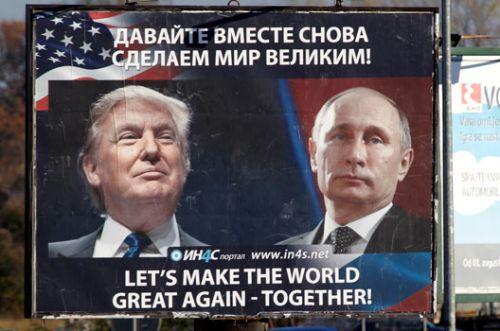The US approach to Russia,specifically the future of sanctions imposed in response to Russia’s actions in Ukraine in 2014, is one of the many US foreign policies thrown into question by Donald Trump’s election as the next president of the United States. Quickly lifting these sanctions may simplify compliance efforts for the private sector in the short term, but could create serious challenges for businesses in the long term. Predictability andstability could be undermined by a something-for-nothing deal that lifts the sanctions. The new president may act as early as March of 2017, when the national emergency that underlies the sanctions must be renewed or else expire.
The United States and the European Union imposed sanctions on Russia in 2014 in response to Russia’s attempted annexation of Crimea and support for separatists in eastern Ukraine. These sanctions prohibit transactions with certain individuals and entities, limit exports of military equipment, place an economic embargo on Crimea, and limit access to financing for Russian state-owned banks and other state-owned institutions. With respect to energy, the sanctions prohibit the provision of goods and services in support of Russian deepwater, Arctic offshore, and shale projects capable of producing oil and that involve one of the sanctioned state-owned energy companies. This last provision has severely limited Russia’s access to US technology, equipment, and talent.
The president has almost unfettered discretion to lift the sanctions, which were put in place by executive orders that the president can lift or amend at will. US President Barack Obama signed the Ukraine Freedom Support Act of 2014, which included anumber of additional sanctions on Russia and Russian entities. However, most of the sanctions in the legislation are discretionary or subject to a national security waiver.
US companies have generally routinized their compliance with the sanctions following a compliance “roller coaster” in 2014 when the Obama administration issued numerous tranches of sanctions, many of which were unprecedented and unfamiliar to compliance officers and their outside counsel. Most companies can continue to do business in Russia, but with an added layer of hesitation and cost when lawyers must be consulted and transactions screened and approved.
Lifting the sanctions would remove the burden of compliance for US companies doing business in Russia. It would also prevent non-US companies from having to “firewall” US persons from transactions that their US employees, service providers, and banks are currently prohibited from facilitating. As aresult, companies would be able to make business decisions more quickly for transactions in Russia. Russian state-owned companies would benefit significantly by gaining access to international financing and oilfield services and technology.
However, lifting sanctions risks creating confusion and unpredictability for US and international companies in the years to come. The United States and the rest of the G-7 governments have made clear that they will not lift sanctions on Russia untilMoscow has fully implemented the Minsk agreements, which are aimed at ending the crisis in Ukraine. Russiahas, sofar, failed to honor the terms of the agreements. Assuming Russian President Vladimir Putin doesn’t have a change of heart in the coming months, by lifting sanctions, the Trump administration would be abandoning a clear and broadly-understood condition for sanctions relief that G-7 leaders have articulated for more than a year. Even if Russia were to show some token progress toward stabilizing eastern Ukraine, it is unlikely to cede control of Crimea in order to justify lifting the US embargo.
The impact on the private sector of lifting the sanctions—as compared to the impact on international norms—may not be immediately obvious. Such an action could make companies more cautious and conservative when doing business around the world and make sanctions a less effective tool.
Private compliance benefits from predictability and certainty. Companies planning deals months and years in advance need to know what to expect. Even when liftingsanctions has hinged on world events and political decisions, it has been foreshadowed by the government. The easing of sanctions on Myanmar, for example, followed months of discussions and public announcements from the governments in the United States and Myanmar. The implementation of the nuclear deal with Iran also came months after Tehran reached a lengthy written agreement with the P5+1 countries—the United States, the United Kingdom, Russia, China, France, and Germany.
Lifting the sanctions on Russiain a “something-for-nothing” deal could cause companies to lose faith in the predictability of the administration’s actions. Companies could second-guess messages from the administration about the future of sanctions, and hold back when sanctions are lifted on the assumption that the administration could change policies even in the absence of any change in circumstances. This would deny companies numerous opportunities and would also make sanctions a less effective tool. Business wouldn’t necessarily flow where sanctions are lifted, and US officials could lose their ability to create incentives for sanctioned governments, individuals, and entities.
The Trump administration might be inclined to quickly lift sanctions, but it must firstbe sure such action is justified by clear Russian action.
(By Willkie Farr, an expert at Atlantic Council)




 A single purchase
A single purchase









